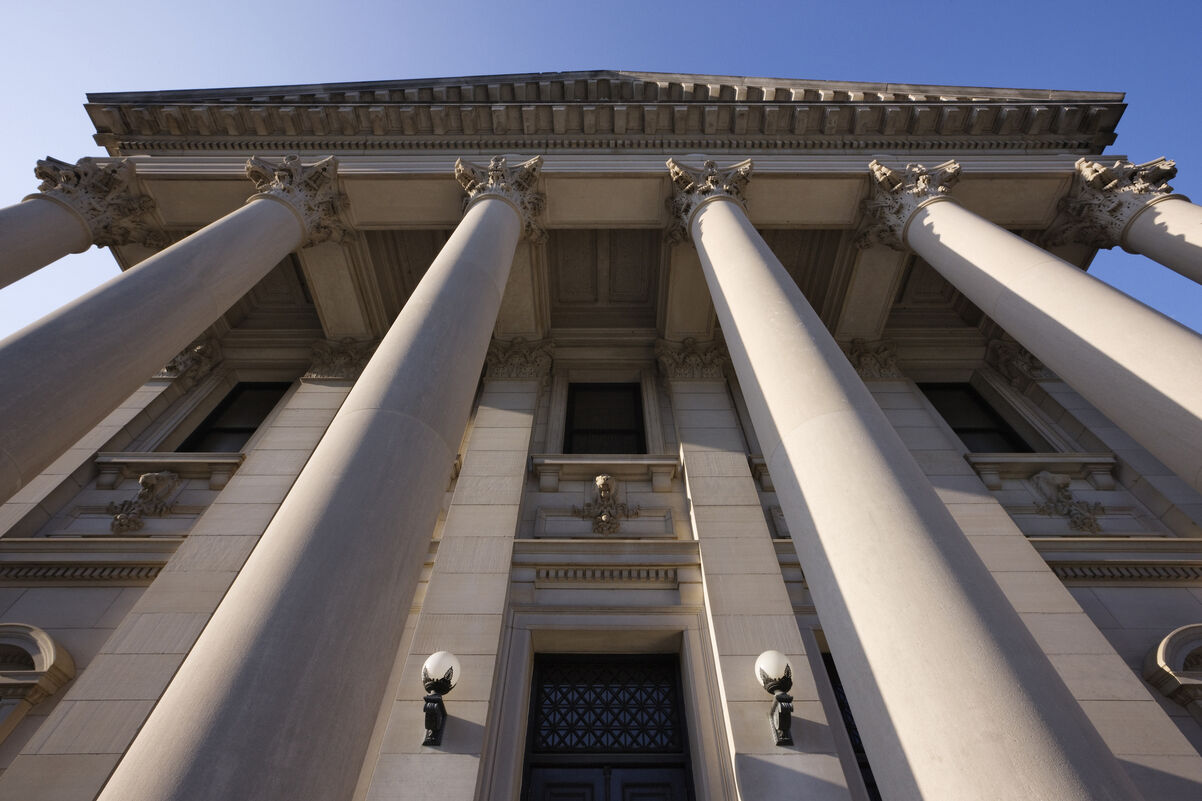The Supreme Court will not hear an appeal to a Mississippi law advocates say permits broad discrimination against the LGBTQ community.
The nation’s highest bench announced on Monday which cases it would be accepting for the upcoming term, and absent from the list was Barber v. Bryant, a federal challenge to the state’s controversial “religious freedom” law, House Bill 1523. That decision leaves intact a lower court ruling which allowed the controversial policy to go into effect in October.
Opponents of HB 1523 say it’s one of the nation’s most extreme and dangerous anti-LGBTQ laws. It prevents the state from taking action in the form of fines and penalties against anyone who discriminates against queer and trans people due to “sincerely held religious belief.”
Advocates argue that the law could, for instance, permit landlords to deny housing to same-sex couples, allow gay workers to be fired for having pictures of their legally wedded spouses on their desks, or give license to transgender people being turned away from hospitals because doctors don’t approve of their gender identity.
GLAAD President and CEO Sarah Kate Ellis added in a statement that HB 1523 “allows hotels, ER doctors, business owners, and even pediatricians to legally deny services to hardworking LGBTQ families in Mississippi.”
Ellis claimed the Supreme Court’s decision not to hear a challenge to the ruling “promotes state-stationed discrimination.”
“While freedom of religion is a fundamental right, it should never give people the right to impose their belief on others and openly discriminate against others in the name of religious exemptions,” she continued.
Although the law was blocked through an injunction after it was initially passed in March 2016, that order was lifted following a June 2017 ruling from the U.S. Court of Appeals for the Fifth Circuit. Judges with the New Orleans-based federal court felt the plaintiffs had not demonstrated “stigmatic injury,” as the law had yet to go into effect.
Without a clear illustration of the harms it would cause, opponents did not have the standing to challenge the proposed policybut left the door open for later challenges.
“Under this current record, the plaintiffs have not shown an injury-in-fact caused by HB 1523 that would empower the district court or this court to rule on its constitutionality,” the court claimed. “We do not foreclose the possibility that a future plaintiff may be able to show clear injury-in-fact that satisfies the ‘irreducible constitutional minimum of standing,’ but the federal courts must withhold judgment unless and until that plaintiff comes forward.”
After the Supreme Court’s refusal to hear further appeal was made public, LGBTQ advocates vowed to continue combatting the law.
“The Supreme Court’s decision not to review this case is not an endorsement of HB 1523 or the wave of similar discriminatory laws across the country,” said Lambda Legal Attorney Beth Littrell in a press release, “and it does not change what the Court clearly ruled in Obergefell v. Hodges […] that same-sex couples and their families should be treated like other families in this country and not to do so is harmful and unconstitutional.”
“We will keep fighting in Mississippi until we overturn this harmful law, and in any state where anti-gay legislators pass laws to roll back LGBTQ civil rights,” she continued. “Unfortunately, the Supreme Court’s decision today leaves LGBTQ people in Mississippi in the crosshairs of hate and humiliation, delaying justice and equality.”
Later this year the Supreme Court is set to issue its decision on Masterpiece Cakeshop v. Colorado Civil Rights Commission, in which a Christian baker is lobbying for his right to refuse service to a gay couple based on his religious beliefs.
SCOTUS heard oral arguments in the case in December and a verdict is expected by June.
Image via Getty
Don't forget to share:
Help make sure LGBTQ+ stories are being told...
We can't rely on mainstream media to tell our stories. That's why we don't lock our articles behind a paywall. Will you support our mission with a contribution today?
Cancel anytime · Proudly LGBTQ+ owned and operated
Read More in Impact
The Latest on INTO
Subscribe to get a twice-weekly dose of queer news, updates, and insights from the INTO team.
in Your Inbox













